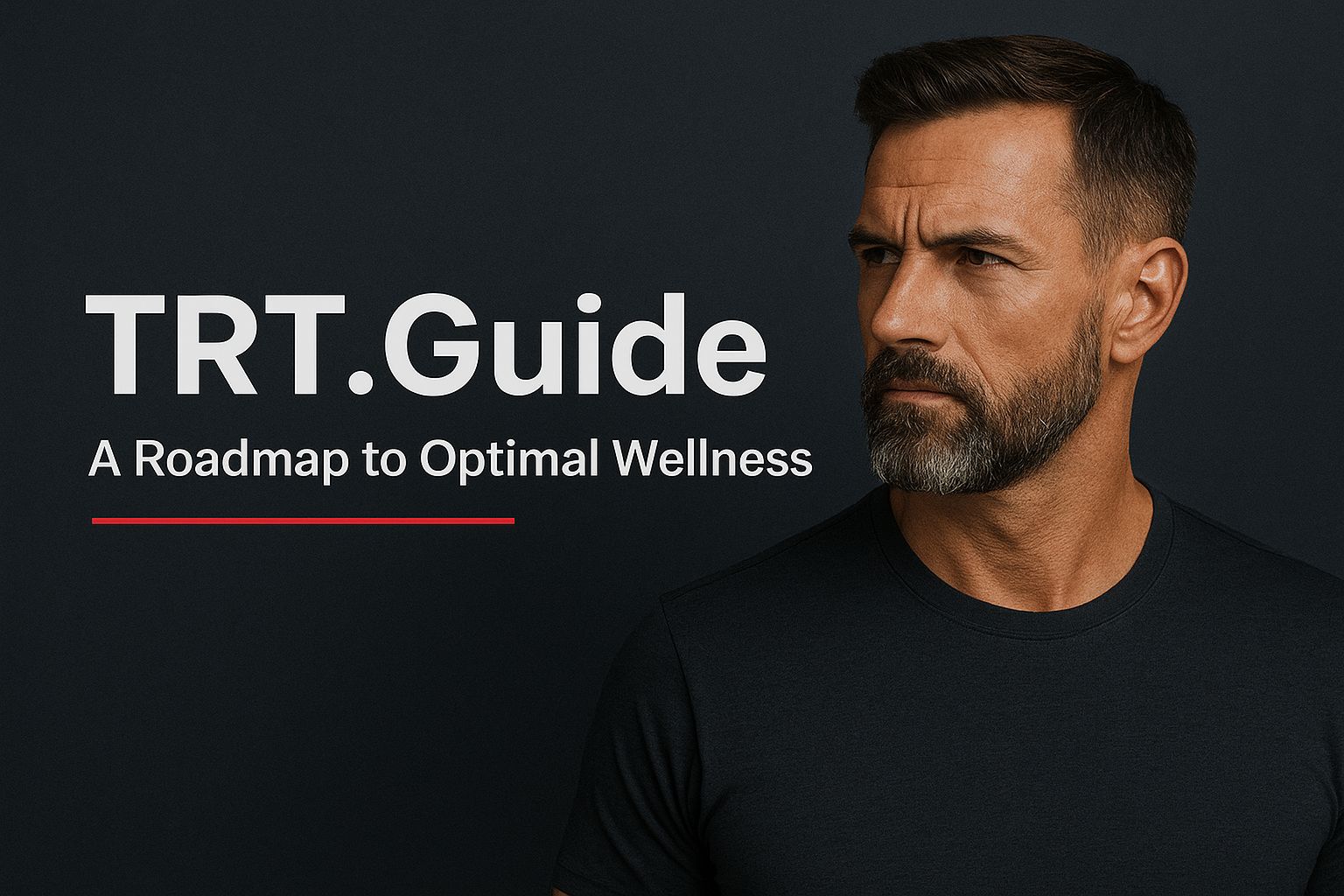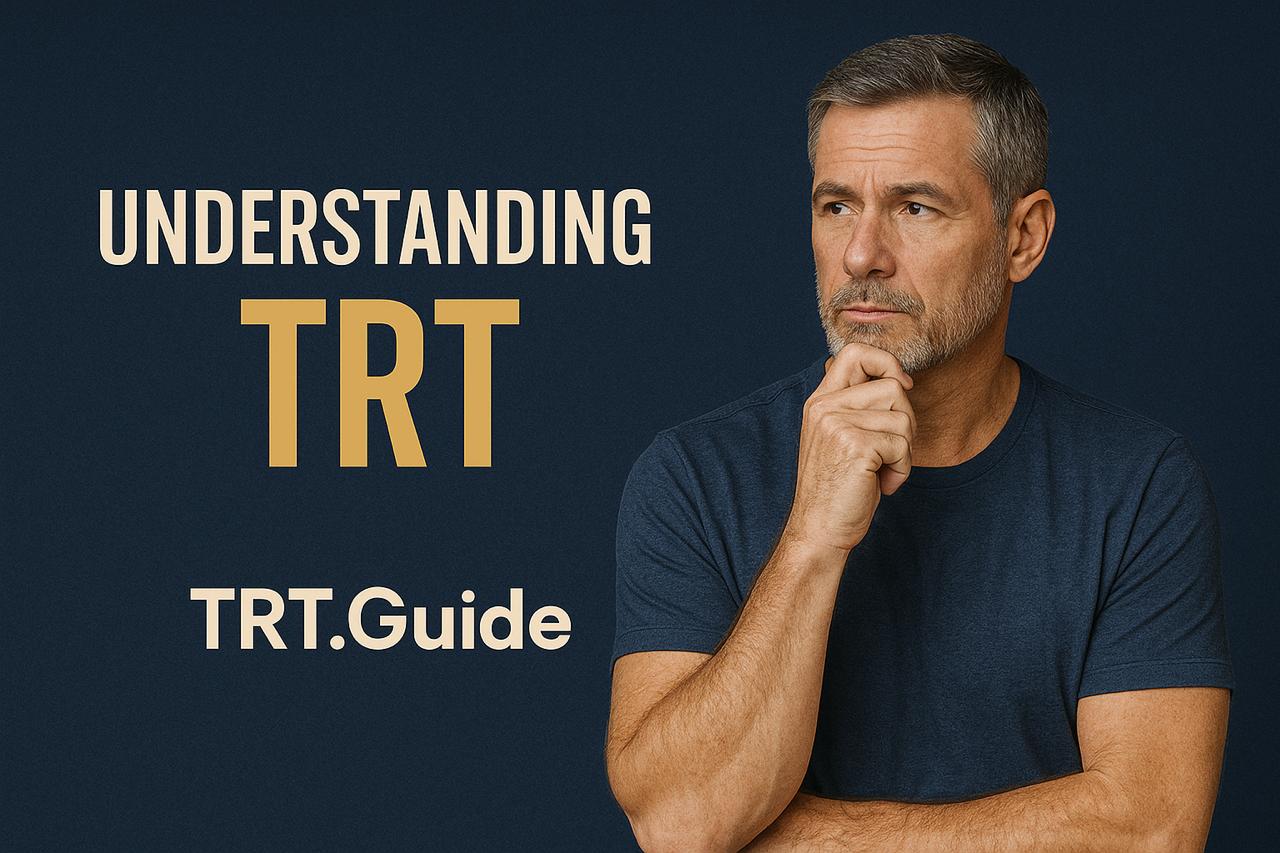Testosterone therapy has gained popularity for its potential benefits in enhancing mood and physical performance. However, as more men consider this treatment, questions about its side effects emerge. One of the most pressing concerns is whether testosterone therapy can actually lead to increased anxiety levels.
Understanding the relationship between testosterone and mental health is crucial for anyone contemplating this therapy. You might be wondering if boosting your testosterone could come at the cost of your emotional well-being. In this article, we’ll dive into the connection between testosterone therapy and anxiety, helping you make an informed decision about your health.
Overview of Testosterone Therapy
Testosterone therapy aims to restore hormone levels to improve various physical and mental health aspects. Understanding its applications and benefits helps you evaluate its suitability for your needs.
What Is Testosterone Therapy?
Testosterone therapy involves administering testosterone to address low hormone levels. Methods include injections, patches, gels, and pellets. These forms deliver testosterone directly into the bloodstream or the skin. You might seek this therapy if you experience symptoms like fatigue, low libido, or mood changes, often linked to low testosterone levels. Regular monitoring during therapy ensures hormone levels remain balanced and informs any necessary adjustments to the treatment plan.
Common Uses of Testosterone Therapy
Testosterone therapy serves multiple purposes. Common uses include:
- Hypogonadism: Testosterone therapy treats men with low testosterone production due to testicular or pituitary dysfunction.
- Age-Related Decline: Older men may benefit from therapy as testosterone levels often decrease with age, leading to various health issues.
- Sexual Dysfunction: Therapy improves libido and sexual performance in men experiencing erectile dysfunction or decreased interest in sexual activity.
- Muscle Mass Increase: Athletes and individuals engaging in resistance training often seek testosterone therapy to enhance muscle growth and physical performance.
- Mood Improvement: Therapy may alleviate symptoms of depression or low mood linked to low testosterone levels, enhancing overall emotional well-being.
Consult a healthcare professional to discuss specific uses and potential risks related to treatment.
Understanding Anxiety
Anxiety encompasses a range of emotional and physical responses to perceived threats or stressors. Understanding its definition and types can enhance awareness of how it may relate to testosterone replacement therapy.
Definition of Anxiety
Anxiety represents feelings of worry, fear, or apprehension about future events. It can manifest through various physical symptoms, including increased heart rate, sweating, or trembling. Thze American Psychological Association defines anxiety as a normal reaction to stress, but it becomes problematic when persistent or overwhelming. Symptoms vary from mild to severe, often impacting daily activities and quality of life. Recognizing anxiety’s definition provides a foundational understanding of how it may interconnect with factors like testosterone therapy.
Types of Anxiety Disorders
Multiple types of anxiety disorders exist, each with unique characteristics. Here’s a brief overview:
- Generalized Anxiety Disorder (GAD): Excessive worry about various life aspects occurs over six months or more.
- Panic Disorder: Recurrent unexpected panic attacks, leading to a fear of future attacks, defines this disorder.
- Social Anxiety Disorder: Intense fear of social situations and scrutiny from others causes significant distress.
- Specific Phobias: Unrealistic fear of specific objects or situations leads to avoidance behavior.
- Obsessive-Compulsive Disorder (OCD): Intrusive thoughts result in compulsive behaviors aimed at reducing anxiety.
Understanding these disorders helps identify symptoms that may arise in individuals undergoing testosterone therapy, allowing for better management and treatment decisions.
The Link Between Testosterone and Mood
Testosterone influences various aspects of mental health, including mood regulation. By understanding how testosterone affects mood, you can make more informed choices about therapy and its potential impact on anxiety.
How Testosterone Affects Mood
Testosterone plays a crucial role in mood regulation by influencing neurotransmitters such as serotonin and dopamine. These neurotransmitters help balance feelings of well-being and happiness. Low testosterone levels often correlate with mood swings, fatigue, and depressive symptoms. Studies show that testosterone therapy may improve mood in men with low testosterone, reducing feelings of irritability and depression. Improvements often manifest as a greater sense of well-being and increased energy. However, fluctuations in testosterone levels from therapy can lead to mood instability, potentially increasing anxiety. Understanding your unique hormonal needs and monitoring changes can help mitigate adverse effects.
Research on Testosterone Levels and Anxiety
Many studies explore the relationship between testosterone levels and anxiety. Research indicates that low testosterone may link to increased anxiety symptoms. A study published in the Journal of Clinical Psychiatry highlights that men with lower testosterone levels often report higher anxiety. Conversely, another study suggests that testosterone therapy can improve anxiety in some individuals, especially if they started with low testosterone. However, therapy can also result in heightened anxiety for some patients due to rapid hormonal changes. Clinical guidance emphasizes the need for personalized treatment plans, ensuring careful monitoring of testosterone levels throughout therapy.
Can Testosterone Therapy Cause Anxiety?
Understanding the relationship between testosterone therapy and anxiety is essential for making informed health decisions. While some may experience improvements in mood, others may encounter increased anxiety levels.
Analyzing the Evidence
Studies present mixed results regarding testosterone therapy and anxiety. Research published in the Journal of Clinical Psychiatry suggests that testosterone replacement may reduce symptoms of anxiety in men with low testosterone levels. Conversely, some individuals report heightened anxiety after initiating therapy, particularly during early treatment phases when hormone levels fluctuate. In a comprehensive review, evidence indicates that while testosterone can enhance mood in some, it may also lead to increased irritability and anxiety in others, especially when dosage adjustments occur. Regularly monitoring hormone levels is crucial; maintaining optimal testosterone ranges helps mitigate potential side effects. Consulting healthcare professionals can ensure therapy is tailored to your specific needs while considering any pre-existing anxiety disorders.
Potential Mechanisms of Impact
Testosterone’s impact on anxiety may stem from its influence on neurotransmitter activity. Testosterone affects serotonin and dopamine levels, which play significant roles in mood regulation. Fluctuations in these neurotransmitters can contribute to anxiety symptoms. Additionally, testosterone can stimulate or inhibit specific brain areas linked to anxiety responses, such as the amygdala. Increased testosterone levels may enhance resilience to stress, reducing anxiety perceptions. However, rapid changes in testosterone levels during therapy can disrupt this balance, leading to mood instability. Understanding individual variations in body chemistry is essential, as responses to therapy can differ greatly. It’s crucial to approach testosterone treatment with awareness of its potential psychological effects and seek ongoing support to manage any emerging anxiety symptoms.
Managing Anxiety During Testosterone Therapy
Managing anxiety during testosterone therapy requires attention to monitoring and support strategies, as well as considering alternative treatments.
Monitoring and Support Strategies
Regular monitoring of hormone levels plays a critical role in managing anxiety during testosterone therapy. You should schedule periodic blood tests to track testosterone levels and adjust dosages accordingly. Engaging with healthcare professionals keeps you informed about your progress and helps identify any emerging side effects, including anxiety.
Support strategies may involve psychotherapy or counseling to address anxiety symptoms. Cognitive-behavioral therapy (CBT) is particularly effective, as it equips you with tools to cope with anxious thoughts and feelings. Additionally, joining support groups can provide valuable insights and emotional support from others experiencing similar challenges. Implementing lifestyle changes, such as regular exercise and a healthy diet, may enhance overall well-being and reduce anxiety levels.
Staying in close communication with your healthcare team is essential. They can help tailor treatment plans and recommend relaxation techniques, like mindfulness or meditation, to aid in anxiety management.
Alternative Treatments and Options
Several alternative treatments exist for managing anxiety during testosterone therapy. Practicing mindfulness and meditation can provide you with relaxation techniques that alleviate anxiety symptoms. Incorporating activities like yoga or tai chi promotes physical and mental balance, supporting your overall health.
Nutritional supplements may also help. Omega-3 fatty acids, magnesium, and B vitamins are associated with improved mental health. However, always consult your healthcare provider before adding supplements to ensure they fit well with your therapy and medical history.
Pharmacological options are available as well. Anti-anxiety medications, such as selective serotonin reuptake inhibitors (SSRIs) or benzodiazepines, may provide relief if anxiety persists and significantly impacts your daily life. Your healthcare provider can assist in determining the best approach, balancing hormone therapy with any necessary medications to manage anxiety effectively.
Conclusion
Navigating testosterone therapy can be complex especially when considering its impact on anxiety. While some individuals may find relief from anxiety symptoms through therapy others may experience heightened anxiety during treatment. It’s crucial to monitor your hormone levels regularly and maintain open communication with your healthcare provider.
By understanding the potential effects of testosterone on your mental health you can make informed decisions about your treatment plan. Support strategies like therapy and lifestyle changes can further enhance your well-being. Ultimately a personalized approach that considers your unique situation will help you manage anxiety effectively while undergoing testosterone therapy.
Frequently Asked Questions
What is testosterone therapy?
Testosterone therapy aims to restore hormone levels in men to improve physical and mental health. It can address issues like low testosterone due to aging or medical conditions, enhancing mood, muscle mass, and sexual function.
How is testosterone therapy administered?
Testosterone therapy can be administered through various methods including injections, patches, gels, and pellets. The choice depends on personal preference, health condition, and recommendations from healthcare professionals.
What are the benefits of testosterone therapy?
Benefits of testosterone therapy include improved mood, increased muscle mass, enhanced libido, and better overall energy levels. It can also help alleviate symptoms associated with low testosterone, such as fatigue and irritability.
Can testosterone therapy increase anxiety levels?
While testosterone therapy may improve mood in some individuals, it can also lead to increased anxiety for others, especially during the initial treatment phases due to hormone fluctuations. Regular monitoring is crucial to manage any side effects.
How does testosterone affect mood?
Testosterone influences neurotransmitters like serotonin and dopamine, which are essential for mood regulation. Low testosterone levels may lead to mood swings and depressive symptoms, while therapy can help stabilize mood for some individuals.
What are common side effects of testosterone therapy?
Common side effects can include acne, increased red blood cell count, mood swings, and possibly increased anxiety levels. Routine monitoring can help manage these effects and ensure hormone levels remain balanced.
How often should hormone levels be monitored during therapy?
It is recommended to have hormone levels checked regularly, typically every 3 to 6 months, to ensure they remain within the desired range and to adjust the treatment plan if necessary.
Should I consult a healthcare professional before starting testosterone therapy?
Yes, consulting with a healthcare professional is vital before starting testosterone therapy. They can evaluate your specific needs, discuss potential risks, and recommend a personalized treatment plan based on your health history.
Are there alternative treatments for managing anxiety during testosterone therapy?
Yes, alternative treatments for managing anxiety can include lifestyle changes such as exercise and a healthy diet, as well as psychotherapy, mindfulness, and yoga. Discuss these options with your healthcare provider for the best approach.






